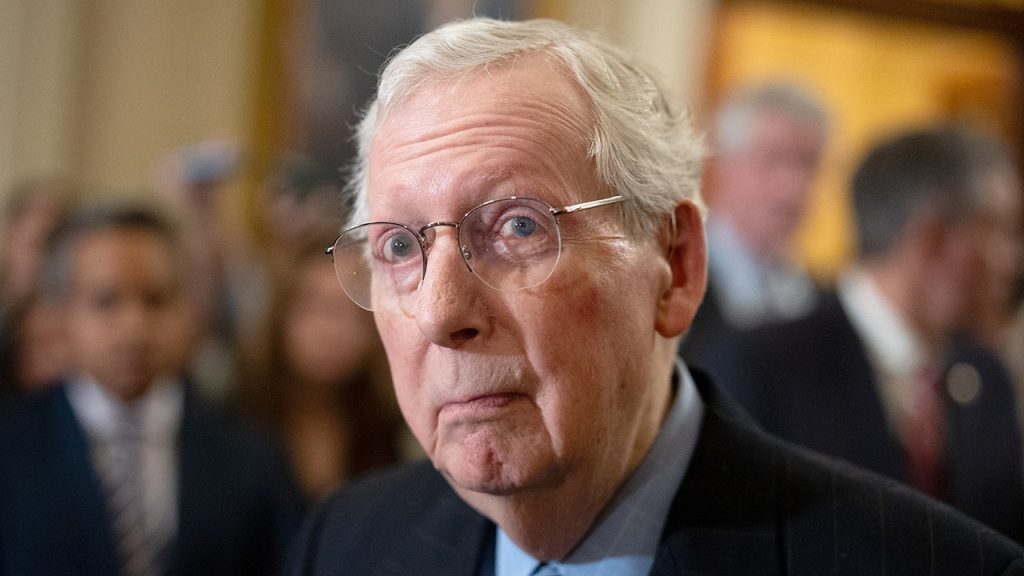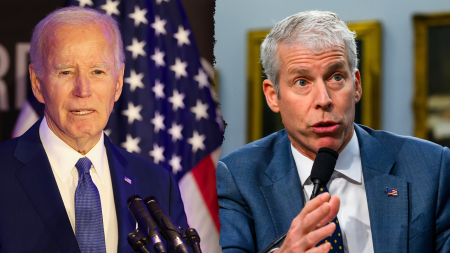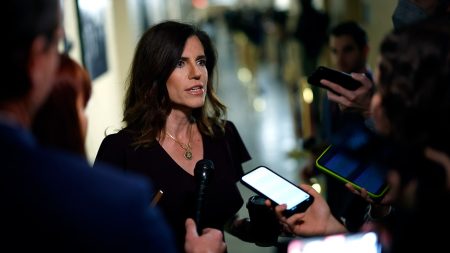Incident and Immediate Aftermath
On Tuesday, Senate Republican Leader Mitch McConnell experienced a fall during a closed-door Republican luncheon. Details surrounding the circumstances of the fall remain limited, with no official statements released describing the precise nature of the incident. Following the fall, a wheelchair was observed being brought into Senator McConnell’s office, shortly before a Washington, D.C. fire and rescue team arrived at the scene. The presence of emergency medical personnel indicates that the fall was considered serious enough to warrant professional medical evaluation. Senator McConnell’s absence from the subsequent Senate GOP weekly press conference further fueled speculation about the severity of his condition.
Initial Response and Limited Information
Senator John Thune, the second-ranking Republican in the Senate, addressed inquiries regarding Senator McConnell’s condition during the weekly press conference. He briefly stated that McConnell was "in his office" and appeared to be fine, but declined to provide further details, deferring all further questions to McConnell’s staff. This limited communication contributed to a climate of uncertainty surrounding the incident, leaving the public and media with unanswered questions regarding the extent of any injuries sustained and the overall impact on Senator McConnell’s health.
Context of McConnell’s Recent Health Concerns
The incident occurs against a backdrop of existing concerns about Senator McConnell’s health. Earlier this year, McConnell experienced a concussion after a fall at a Washington hotel, which led to a period of hospitalization and subsequent rehabilitation. This prior incident raised questions about his overall health and ability to continue in his demanding leadership role. The recent fall will likely reignite these concerns and prompt further scrutiny of his physical condition and its potential implications for his political future.
Implications for Senate Leadership and Republican Party
Senator McConnell’s fall has immediate repercussions for the Senate Republican leadership and the broader Republican Party. As the Senate Minority Leader, McConnell plays a crucial role in shaping legislative strategy and maintaining party unity. Any prolonged absence or impairment of his abilities could create a power vacuum within the Republican caucus and potentially disrupt the party’s legislative agenda. The incident also underscores the challenges posed by aging leadership within the Senate, a topic that has been subject to increasing discussion in recent years.
Public and Media Reaction
The news of Senator McConnell’s fall generated significant interest and speculation in the media and among the public. The lack of detailed information and the controlled communication from McConnell’s office fueled rumors and conjecture about his health status. The incident also sparked a broader conversation about the transparency and disclosure surrounding the health of elected officials, particularly those holding positions of significant power. The public’s right to know about the health and well-being of their elected representatives is often balanced against concerns about privacy and the potential for political exploitation of health issues.
Looking Ahead: Uncertainty and Potential Scenarios
The immediate future for Senator McConnell remains uncertain. The extent of any injuries sustained in the fall and the potential impact on his ability to perform his duties as Senate Minority Leader are still unknown. Several scenarios are possible, ranging from a quick recovery and return to full duties to a more prolonged absence requiring adjustments within the Republican leadership structure. The upcoming days and weeks will be crucial in determining the long-term implications of this incident for Senator McConnell, the Republican Party, and the Senate as a whole. The incident serves as a stark reminder of the inherent vulnerabilities of political leaders and the potential for unforeseen events to disrupt the political landscape.










